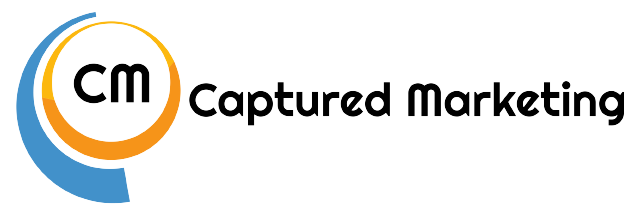
Pay-per-click (PPC) advertising can be a powerful tool for driving traffic and sales when done right. But, even small mistakes can cost you a lot of money without yielding good results. That’s why it’s important to know what to avoid to make the most out of your PPC campaigns.
One common issue is overlooking keyword match types. Choosing the wrong match type can lead to your ads showing up for irrelevant searches, wasting your budget. Another mistake is ignoring ad copy testing. Without testing different versions of your ad, you might miss out on the most effective message that could drive conversions.
Failing to track conversion goals is another major pitfall. If you don’t know which actions you want your audience to take, you can’t measure your success. Lastly, neglecting regular campaign optimization can lead to missed opportunities for improvements. Regular checks and adjustments help keep your campaigns on track and performing well.
Avoiding these common mistakes will help you run more effective PPC campaigns. In this article, we’ll dive deeper into these pitfalls and provide practical tips on how to avoid them and achieve better results with your PPC efforts.
Overlooking Keyword Match Types
When setting up a PPC campaign, overlooking keyword match types can lead to wasted spend and missed opportunities. Keyword match types determine how closely a user’s search query must match your keyword before your ad appears. There are four main match types: broad, phrase, exact, and broad match modifier.
1. Broad Match: Ads appear for searches that include misspellings, synonyms, related searches, and other variations. While broad match can increase your ad’s reach, it can also trigger irrelevant clicks. This can waste your budget on users who aren’t looking for your product or service.
2. Phrase Match: Ads show for searches that include the meaning of your keyword. This match type allows for more targeted reach compared to broad match while still capturing relevant variations.
3. Exact Match: Ads appear only for searches that include your keyword or close variations. Exact match provides the highest level of control but limits your reach to very specific searches.
4. Broad Match Modifier: Ads show for searches that include your keyword and close variations. Adding a plus sign (+) before a keyword ensures that the search query contains that specific word, giving you more control while allowing some flexibility.
Choosing the right match type is crucial for targeting the right audience and getting the most out of your budget. Regularly reviewing and adjusting your keyword match types can improve your campaign’s efficiency and effectiveness.
Ignoring Ad Copy Testing
Ignoring ad copy testing can hurt the performance of your PPC campaigns. Testing different versions of your ads helps you find what resonates best with your audience. Without testing, you might miss out on higher click-through rates and conversions.
1. A/B Testing: Create two versions of your ad with different headlines or descriptions and run them simultaneously. Compare the performance of both ads to see which one performs better. This method is simple and effective for optimizing ad copy.
2. Focus on Key Elements: Test key elements like headlines, descriptions, call-to-action (CTA) phrases, and display URLs. Small changes, like tweaking a headline, can significantly impact your ad’s performance.
3. Use Clear Metrics: Track metrics such as click-through rate (CTR), conversion rate, and cost per conversion. These metrics help you determine which ad copy is more effective. Don’t rely on impressions alone, as they don’t measure user engagement.
4. Iterate and Improve: Once you identify a winning ad copy, continue to test new variations. The goal is to keep improving and adapting to changing user preferences and market conditions.
By regularly testing and optimizing your ad copy, you can improve the effectiveness of your PPC campaigns and get a better return on investment. This continuous improvement cycle is essential for maintaining a competitive edge in PPC advertising.
Failing to Track Conversion Goals
Failing to track conversion goals can sabotage your PPC and SEO efforts. Conversions tell you whether users are completing desired actions on your site, such as making a purchase or filling out a form. Without tracking, you won’t know which strategies are working or need adjustment.
1. Set Clear Goals: Define what counts as a conversion for your business. Goals could include sales, sign-ups, downloads, or any other valuable action. Clear goals help you measure success accurately.
2. Use Analytics Tools: Tools like Google Analytics can help you track conversions. Set up conversion tracking to see how each campaign, keyword, or ad contributes to your goals. This data helps you understand what drives user actions.
3. Implement Conversion Tracking Codes: Add tracking codes to your website’s relevant pages. For instance, the code can be placed on a “Thank You” page after a user completes a purchase. This enables you to capture conversion data effectively.
4. Analyze Results: Regularly review your conversion data to identify strengths and weaknesses in your campaigns. Look at metrics like conversion rate, cost per conversion, and revenue. This information is crucial for making informed decisions about your marketing efforts.
Neglecting Regular Campaign Optimization
Neglecting regular campaign optimization can result in poor performance and wasted budget. Regular optimization ensures your PPC and SEO campaigns remain effective over time. Without it, you risk falling behind competitors and missing out on potential leads.
1. Review Performance Data: Consistently monitor data such as click-through rates (CTR), conversion rates, and return on investment (ROI). This helps you gauge how well your campaigns are doing and identify areas needing improvement.
2. Adjust Bids and Budgets: Modify your bids and budgets based on performance. Increase spending on high-performing keywords and reduce spending on low-performing ones. This helps you maximize the efficiency of your budget.
3. Update Ad Copy and Keywords: Periodically refresh your ad copy and keywords to keep them relevant. Update your ads to reflect current trends, promotions, or changes in your business. This keeps your audience engaged and interested.
4. Test New Strategies: Don’t be afraid to experiment with new tactics. Try different keyword match types, ad formats, or landing pages. Testing new strategies can help you discover more effective ways to reach your audience.
Conclusion
Using SEO and PPC for maximum impact requires attention to detail and ongoing effort. Overlooking crucial aspects like keyword match types or ad copy testing can diminish your success. Failing to track conversions or neglecting regular optimization can waste your budget and miss key opportunities.
By understanding the importance of each component, you can make informed decisions that enhance your marketing strategy. Consistent review and optimization ensure that your campaigns stay relevant and effective. This boosts your website’s visibility and drives valuable traffic.
At Captured Marketing, we specialize in helping you achieve these goals. Our Phoenix digital marketing agency is dedicated to maximizing your SEO and PPC efforts. Ready to see better results? Contact Captured Marketing today to get started!




